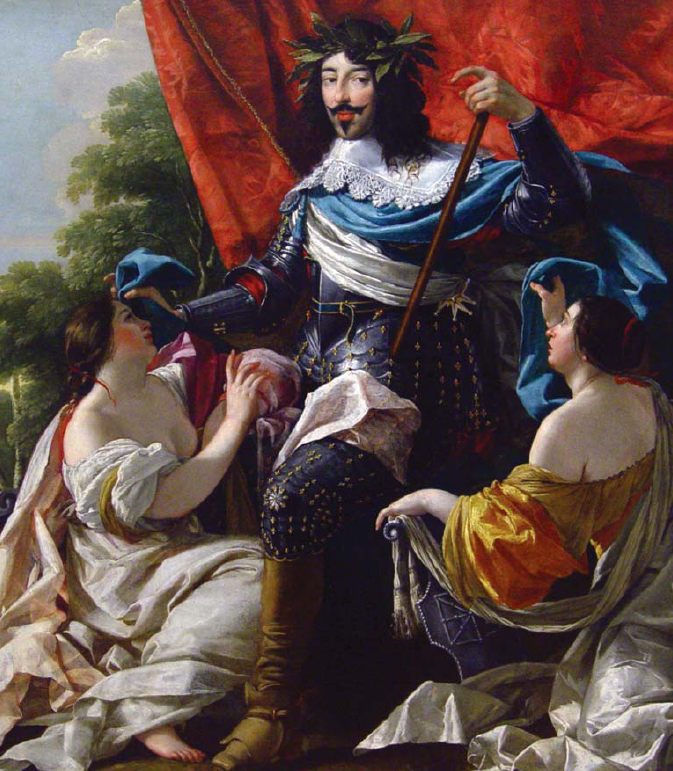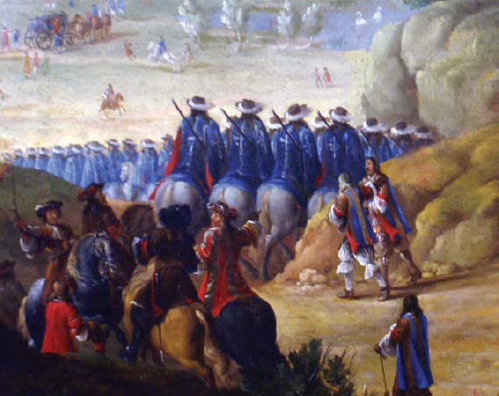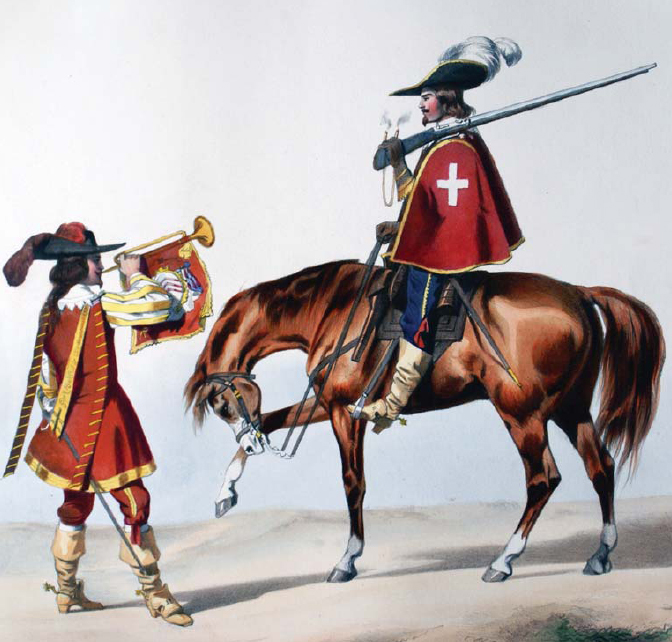WARRIOR 168
FRENCH MUSKETEER 16221775
| REN CHARTRAND | ILLUSTRATED BY GRAHAM TURNER |
| Series editor Marcus Cowper |
CONTENTS
FRENCH MUSKETEER 16221775
INTRODUCTION
On a fine day during the year 1700, a work was published under the title Mmoires de Mr. dArtagnan, Capitaine-Lieutenant de la premire Compagnie des Mousquetaires du Roi, Concernant quantit de choses particulires et secrtes Qui se sont passes sous le Rgne de Louis le Grand (Memoirs of Mr dArtagnan, Captain-Lieutenant of the First Company of the Kings Musketeers, concerning a quantity of private and secret events that occurred during the reign of Louis the Great). Its publisher was Pierre Marteau in Cologne, Germany.
At least, that is what was printed on the title page. In fact, there was no publisher by the name of Pierre Marteau in Cologne or elsewhere. For some 40 years, anonymous publishers of French books had used the name of this non-existent publisher in instances when they would not obtain the approval of the royal censors. Moreover, the books were not even published in Cologne.
The book itself was written by Gatien de Courtiz de Sandras, born in Montargis, France, in 1644 and this is where it becomes interesting he had been a Kings Musketeer for some 18 years before becoming an officer in the elite Champagne Regiment. His real ambition was to earn his living as an author and, in 1688, he left the army and went to Amsterdam with a number of his manuscripts. These were mainly apocryphal memoirs of French political figures, historic accounts, novels and somewhat political pamphlets, and they seem to have had some literary success. Then, in 1700, his memoirs of dArtagnan appeared. As a young musketeer, he had surely seen Capitaine-Lieutenant dArtagnan, who was already something of a legend in his own time, before his death in 1673. So, it is possible that some of Courtizs memoirs of dArtagnan contain many true facts (but also others that cannot be verified). The French censors certainly thought so. When Courtiz came back to France in 1702, he was promptly arrested and shut in the Bastille for nine years. He died in Paris during May 1712, shortly after his release. Three years later, Louis XIV, the Sun King, passed away, the glow of his reign faded and dArtagnan was soon totally forgotten.
Nearly a century and a half later, in the early 1840s, the prolific novelist Alexandre Dumas (180270) came across Courtizs apocryphal memoir of dArtagnan. These memoirs in particular, as well as several other reminiscences from French noblemen of 17th-century France, inspired Dumas to come up with the extraordinary plot contained in The Three Musketeers. This novel was first serialized in the Paris newspaper Le Sicle from March to July 1844. The storys success was outstanding and it was soon put out in book form. It was translated into English in 1846 and before long it was an international success. Eager to follow up with another bestseller, Dumas was already busy writing Twenty Years After, which was serialized from January to August 1845 before becoming another bestselling book. The public had a passion for the adventures of dArtagnan and his companions, so Dumas wrote another sequel, The Vicomte de Bragelonne: Ten Years Later, also initially serialized in 268 chapters from 1847 to 1850. This included a sub-novel with the title of The Man in the Iron Mask that became famous in its own right. The three novels became known as the dArtagnan Romances.

King Louis XIII, c.1630. In 1622, he founded the Kings Musketeers. The two women represent France (at left) and Navarre (at right). Painting by Simon Vouet. Muse du Louvre, Paris. (Authors photo)
Trooper and trumpeter, Cardinal Richelieus Guard, 1628. The trooper has a red cassock with a white cross. The trumpeter wears the cardinals red livery and his trumpet banner is embroidered with his coat of arms. Print after Marbot. Canadian War Museum, Ottawa. (Authors photo)
The fictional musketeer Athos was an actual musketeer named Armand de Sillgue dAthos dAutevielle. Born in about 1615, he did not have much in common with the fatherly figure in the novel since he was actually quite young. He entered the Kings Musketeers around 1641 and was buried in Paris on 22 December 1643, having died from the results of wounds most likely sustained during a duel.
Porthos was simply a fictional character whose name was borrowed from the real-life Isaac de Porthau (16171702), born into a military family in Pau, in Barn. His name appears in two 1642 rolls of the Gardes Franaises Regiment; it is uncertain if he actually served in the Kings Musketeers. He soon left the service, possibly because of battle wounds, and was for a time on the garrison staff of the citadel of Navarrenx, which was the sort of position often filled by invalided military men.
The novels fictional musketeer Ren dAramis de Vannes, or Aramis, was based on Henri dAramitz, born in Barn in about 1620. He entered the Kings Musketeers around 1641. He probably went back to his native province in 1646 and quietly passed away there ten years later.
As for Charles de Batz de Castelmore dArtagnan, he was also a real musketeer and differs from the above three musketeers in that the events of his life more closely resemble the plots of Dumass novels and Courtizs apocryphal memoirs. Several historians have carried out research to find out who the real dArtagnan was and what his achievements were. We note in particular DArtagnan, mousquetaire du roi by archivist Odile Bordaz. While Dumas gives a real sense of the social and political atmosphere of 17th-century France, he used artistic licence with regard to actual events and timelines. For instance, in The Three Musketeers, dArtagnan arrives in Paris in the mid-1620s and there links up with the three musketeers. In fact, the first trace of dArtagnan being in the Kings Musketeers was in 1633 when, on 10 March, he is listed as an ordinary, and undoubtedly quite young, member of the unit. He was indeed the younger son of a proud but not very wealthy gentleman in the overpopulated and poor province of Gascony in south-western France. Born between 1611 and 1615, he seems to have come to Paris in about 1630. After 1633, there is no documentary evidence of him until 1646 when we find him as one of the gentlemen in the service of Cardinal Mazarin, the prime minister and the most powerful man in the kingdom, at a time when King Louis XIV was just a young boy. Unflinchingly loyal to the royal family, dArtagnan found himself in the midst of delicate and secret missions during the Fronde revolts and the teenage king would never forget his loyalty. In 1655, he became a captain in the Gardes Franaises Regiment and, in May 1658, was back in the Kings Musketeers as its second lieutenant, which was in actual fact a promotion. By 1667, he was captain-lieutenant of the 1st Company, which made him its commandant since the king himself was the captain. The musketeers served in close proximity with the king and, from 1661, Louis XIV entrusted dArtagnan with carrying out some extremely delicate missions. These were performed successfully, but dArtagnan was happiest on the battlefield with his men. Reputed to be extremely brave, his end came on 25 June 1673 while charging the fortifications of Maastricht. Louis XIV, deeply affected by the loss, arranged for a funeral mass to be held in his memory in his private chapel and the renowned poet Saint-Blaize wrote a poem, the last lines of which were DArtagnan and glory share the same coffin.














